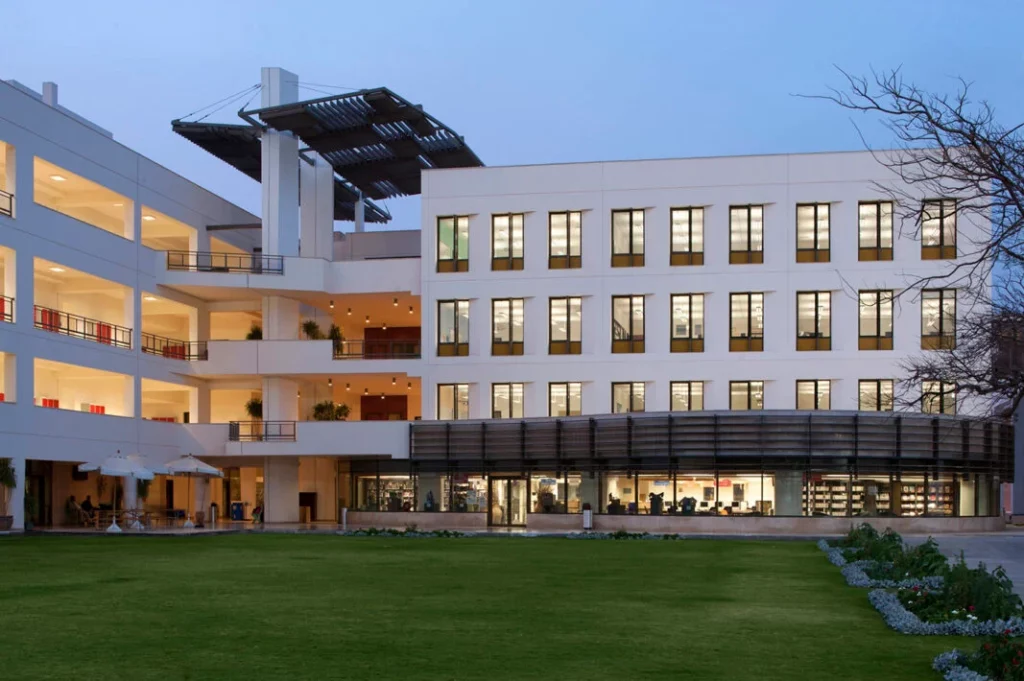Green building certifications like LEED, BREEAM, and WELL greatly aid sustainability in architecture and urban development. These certificates attest to a building’s compliance with energy-efficient, health-conscious, and environmental requirements, reducing its adverse effects on the environment and improving residents’ quality of life. However, getting these certifications can be a complicated process that calls for a lot of data collection, exact compliance with specifications, and close collaboration from everyone concerned.
In this intricate landscape, artificial intelligence (AI) has emerged as a transformative force, offering innovative solutions that streamline the certification process. AI guarantees that buildings adhere to or exceed sustainability targets while speeding up the procedure for getting green certifications through its ability to assess large datasets, forecast outcomes, and automate repetitive processes. The potential to transform green certification procedures is becoming more evident as the construction sector incorporates AI tools into its operations more and more.
The Growing Need for Green Building Certifications
Green building certifications are becoming an essential part of sustainable development as environmental deterioration and climate change become more widely recognized. These certifications offer measurable guidelines that promote resource conservation, energy efficiency, and little environmental disturbance. They are essential in reducing the environmental impact of urbanization by encouraging sustainable building methods.
These certifications provide developers with real advantages like lower operating expenses, increased marketability, and adherence to environmental regulations. Tenants and buyers who value ecologically friendly living and working environments are more likely to seek out certified green buildings. Because they also assist corporate social responsibility goals, they are beautiful to firms.
Getting these qualifications, though, can be an exhausting process. Developers have to deal with complex requirements that differ between certification programs and geographical areas. The procedure calls for a great deal of time and experience because it involves thorough documentation, data analysis, and validation. AI is changing the game in this challenging scenario.

Leveraging AI in Sustainable Building Design
The foundation of any green certification begins with a building’s design. AI is particularly good at exact execution and careful planning, which are vital to achieving sustainability goals. With the use of AI-powered design tools, engineers and architects may build buildings that maximize the use of renewable resources, reduce waste, and boost energy efficiency.
By processing significant amounts of data, such as historical energy usage, material properties, and local climate patterns, AI tools can recommend design adjustments that align with certification criteria. For example, AI might suggest optimal building orientations to harness natural light and ventilation, thereby reducing reliance on artificial lighting and air conditioning.
AI allows virtual simulations of a building’s environmental performance prior to construction, in addition to design recommendations. These simulations give developers vital information about waste management, water use, and energy use, allowing them to make choices that improve sustainability results. By identifying possible inefficiencies early in the process, this predictive capability lowers the possibility of costly redesigns and delays.
AI in Resource Optimization and Management
Resource efficiency is a cornerstone of green certifications, focusing on the sustainable use of energy, water, and materials. Effective resource management is made possible by AI-driven solutions, which guarantee that projects fulfill or surpass certification requirements.
AI uses IoT devices and intelligent sensors to track usage trends in real-time for energy management. These systems identify inefficiencies—like excessive HVAC use or lights in vacant spaces—and offer practical suggestions to improve efficiency. By evaluating their viability and anticipated contribution to total energy requirements, artificial intelligence (AI) also makes it easier to connect renewable energy sources, such as solar panels.
In water management, AI tools track usage, identify leaks, and suggest conservation measures. In addition to encouraging sustainability, these insights assist buildings in meeting the strict water efficiency standards set by certification programs.
Another area where AI shows its worth is in material management. AI finds eco-friendly resources and guarantees their effective use by evaluating supply chain data. This degree of accuracy lowers expenses, minimizes waste, and fits nicely with the waste reduction goals established by green certification schemes.
Streamlining Compliance and Reporting
Strict adherence to a variety of requirements is required for gaining green building certifications. The procedure involves collecting, reviewing, and documenting a lot of information to demonstrate that you meet certification standards. This used to be a labor-intensive task, but AI is automating a lot of the process, changing compliance and reporting.
AI systems combine information from several sources, including building records, design blueprints, and on-site surveillance devices. These tools compare this data with certification standards to identify compliance issues and offer solutions. This proactive strategy lowers the possibility of expensive delays or rework by allowing developers to address possible problems early on.
Additionally, AI streamlines the documentation process by producing comprehensive reports customized for particular certification programs. This automation not only saves time but also improves the accuracy and comprehensiveness of submissions, raising the likelihood that the certification will be accepted.
Applying Predictive Analytics to Speed Certification Timelines
Construction projects are time-sensitive, and the extra layer of green certification may make things even more difficult. By predicting possible delays and suggesting ways to reduce them, AI’s predictive analytics skills give a solution.
AI finds hazards that might affect the certification process by examining supply chain dynamics, weather patterns, and past project data. For example, it could identify unfavorable weather patterns that could interfere with construction projects or predict delays in the acquisition of materials. Equipped with this knowledge, project teams can make changes to maintain timeliness.
Additionally, AI helps prioritize tasks that are critical to certification success. By focusing resources on high-impact areas, developers can ensure that milestones are met efficiently, accelerating the overall certification timeline.
Facilitating Collaboration Among Stakeholders
Green building certifications involve multiple stakeholders, including architects, engineers, contractors, and certification bodies. Effective collaboration among these parties is essential for success, and AI facilitates this by providing a centralized platform for communication and data sharing.
Cloud-based AI tools enable real-time collaboration by granting stakeholders access to up-to-date project information. These tools enhance transparency and ensure that all parties remain aligned on project goals and certification requirements.
By maintaining an accurate record of all choices and activities made during the project, AI additionally improves accountability. This transparency reduces disputes and increases stakeholder trust, which facilitates a more smooth certification procedure.

Beyond Certification: AI’s Role in Long-Term Sustainability
The benefits of AI in green building certifications extend beyond the initial certification process. Many certification programs require ongoing compliance to maintain their status, and AI is well-equipped to support this.
AI-powered monitoring systems track a building’s performance over time, ensuring that it continues to meet sustainability standards. These systems identify deviations from expected performance and recommend adjustments to address them. For example, if energy consumption increases unexpectedly, AI can pinpoint the cause and suggest corrective measures.
Additionally, AI contributes to the broader goal of continuous improvement by analyzing performance data and identifying opportunities for further optimization. This proactive approach ensures that certified buildings remain at the forefront of sustainability throughout their lifecycle.
The Future of AI in Green Certifications
As technology advances, the role of AI in green building certifications is expected to grow even further. Emerging technologies such as blockchain and digital twins are likely to complement AI’s capabilities, driving more incredible innovation and efficiency in the certification process.
Blockchain can enhance transparency and trust by providing a secure and immutable record of certification data. Digital twins, on the other hand, enable real-time simulations of building performance, offering a dynamic tool for managing sustainability goals. Together with AI, these technologies have the potential to redefine how green certifications are achieved and maintained.
Conclusion
Artificial intelligence is revolutionizing the green building certification process, offering solutions that address the challenges of design, resource management, compliance, and collaboration. By leveraging advanced analytics and automation, AI accelerates certification timelines, enhances accuracy, and promotes sustainable practices.
As the construction industry continues to embrace sustainability, the integration of AI will become increasingly indispensable. By simplifying the path to green certifications, AI is not only supporting the environmental goals of individual projects but also contributing to the broader effort to create a more sustainable future for all.










